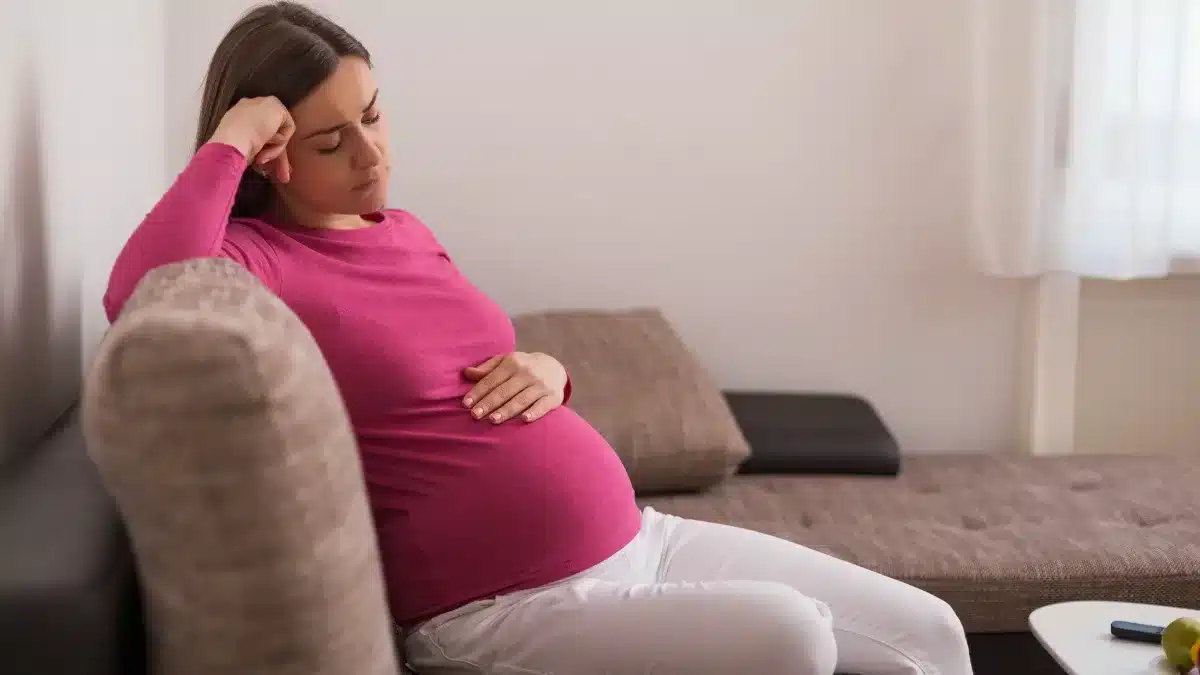HPV and Pregnancy: Understanding Risks of Pregnancy with STD
Pregnancy is a process or series of changes that take place in a woman’s body for the development of the fetus.
However, some STDs, such as Human Papillomavirus (HPV), can raise questions among people about whether they pose a threat to the developing fetus.
HPV is an STD that is recognized to affect many people worldwide and is transmitted through vaginal, oral, and anal sex and close contact.
Depending on its association with cancer, HPV is divided into less severe low-risk type and cancer-causing high-risk type HPV.
But can HPV affect pregnancy?
This comprehensive article will delve into the understanding of HPV and pregnancy and the risks associated with them.
Can you get pregnant with HPV
According to Planned Parenthood, women who have had an HPV infection can get pregnant and have safe pregnancies.
The HPV infection will not harm the baby.
However, women’s healthcare practitioners must know about the history of non-genital warts or genital warts.
Some high-risk HPV may also cause complications in women, such as cancer of the cervix, vagina and vulva.
Do HPV and pregnancy have adverse outcomes
The outcomes of HPV and pregnancy are not very clear.
As studies have reported contradictory results, as some authors have suggested adverse effects, while others see no relationship.
As per NCBI, some outcomes of HPV with pregnancy are as follows:
- Preterm (premature) birth of the child
- Abortions and miscarriages
- Early rupture of the membranes
- Hypertensive Disorders induced by pregnancy (Preeclampsia)
- Low birth weight
- Fetal death
Therefore, it is necessary to consult a healthcare practitioner and get routine check-ups.
Symptoms of HPV in pregnant women

HPV can get asymptomatic or may show symptoms in some cases.
The symptoms in pregnant women are the same as in women without pregnancy.
However, hormonal changes and vaginal discharge in pregnant women may promote the growth of warts faster than usual.
Women with HPV infection can show the following symptoms in women:
- Common warts: Rough bumps that appear on hands and fingers that may cause pain and are susceptible to injury and bleeding
- Plantar warts: These warts are generally grainy in texture and hard to touch. They appear on the feet and may cause discomfort
- Flat warts: Flat warts are less-raised lesions and flat-topped. These can grow anywhere in the body, but women get them around the legs
- Genital warts: Genital warts are small cauliflower-like, flat lesions or tiny stem-like possessions that appear on the genital region
How is HPV diagnosed during pregnancy
Many healthcare practitioners do not recommend a pregnancy test during pregnancy unless they have a reason to do so.
It usually happens when a doctor finds warts on your body during a Pap test.
In this test, a doctor collects the cells from the cervix and sends them to the laboratory to detect precancerous cells.
HPV treatment during pregnancy

Currently, there is no permanent cure for the virus.
It may reappear in the same place and may lead to infection.
However, the treatment helps in managing the symptoms, such as:
- Application of Trichloroacetic acid can burn warts on the genitals and palm region
- Cryotherapy (freezing warts with liquid Nitrogen)
- Laser surgery (burning warts with an electric current)
- Electrocautery
- Surgical removal of warts
You can also lower the risk of HPV during pregnancy by having the same sex.
However, vaccines are not recommended for pregnant women.
Still, HPV can be prevented by avoiding sex with an infected person and using barriers to prevent infection transmission.
Conclusion
HPV is an STD transmits through vaginal, anal, and oral sex and close skin-to-skin contact with an infected person.
Women with HPV and pregnancy may have safe fetal growth and childbirth.
However, some research suggests that HPV can cause adverse pregnancy outcomes, such as preterm birth and miscarriages.
Women with HPV and pregnancy may have the same symptoms as non-pregnant women, such as warts.
However, their warts may grow faster due to hormonal changes.
Generally, HPV cannot be detected in pregnant women unless there is a reason to do so.
Under a doctor’s recommendation, HPV infection can be detected with Pap tests.
After diagnosis, a woman may be prescribed some medicines or recommended surgical treatment to remove warts.
Therefore, it is necessary to consult a healthcare practitioner on suspecting symptoms and seek medical attention.
Frequently Asked Questions
Is it easy to get pregnant with HPV?
Yes, it is possible to get pregnant with HPV. Many HPV infections are clear on their own within two years of first detection and do not pose any serious threat. However, it is recommended to consult a healthcare practitioner and seek medical attention to avoid complications.
Can HPV affect pregnancy?
The outcomes of HPV and pregnancy are not clear and have shown contradictory results. As per some researchers, HPV can cause adverse pregnancy results, such as preterm childbirth, miscarriage, and fetal death. You should consult a healthcare practitioner and seek medical guidance and treatment to avoid complications.
Can you have a baby if you have HPV?
Yes, you can get pregnant and have a baby if you have HPV. However, without treatment, it may cause complications. Thus, it is necessary to consult a healthcare practitioner and get routine check-ups and treatment to prevent severe complications.
What are the HPV treatments for pregnant women?
Currently, there are treatments based on managing the symptoms of HPV. A doctor can prescribe Trichloroacetic acid for burning warts. Further, some surgical removal of warts can also be recommended, such as freezing warts and laser surgery.
WowRx uses only high-quality sources while writing our articles. Please read our content information policy to know more about how we keep our content reliable and trustworthy.






